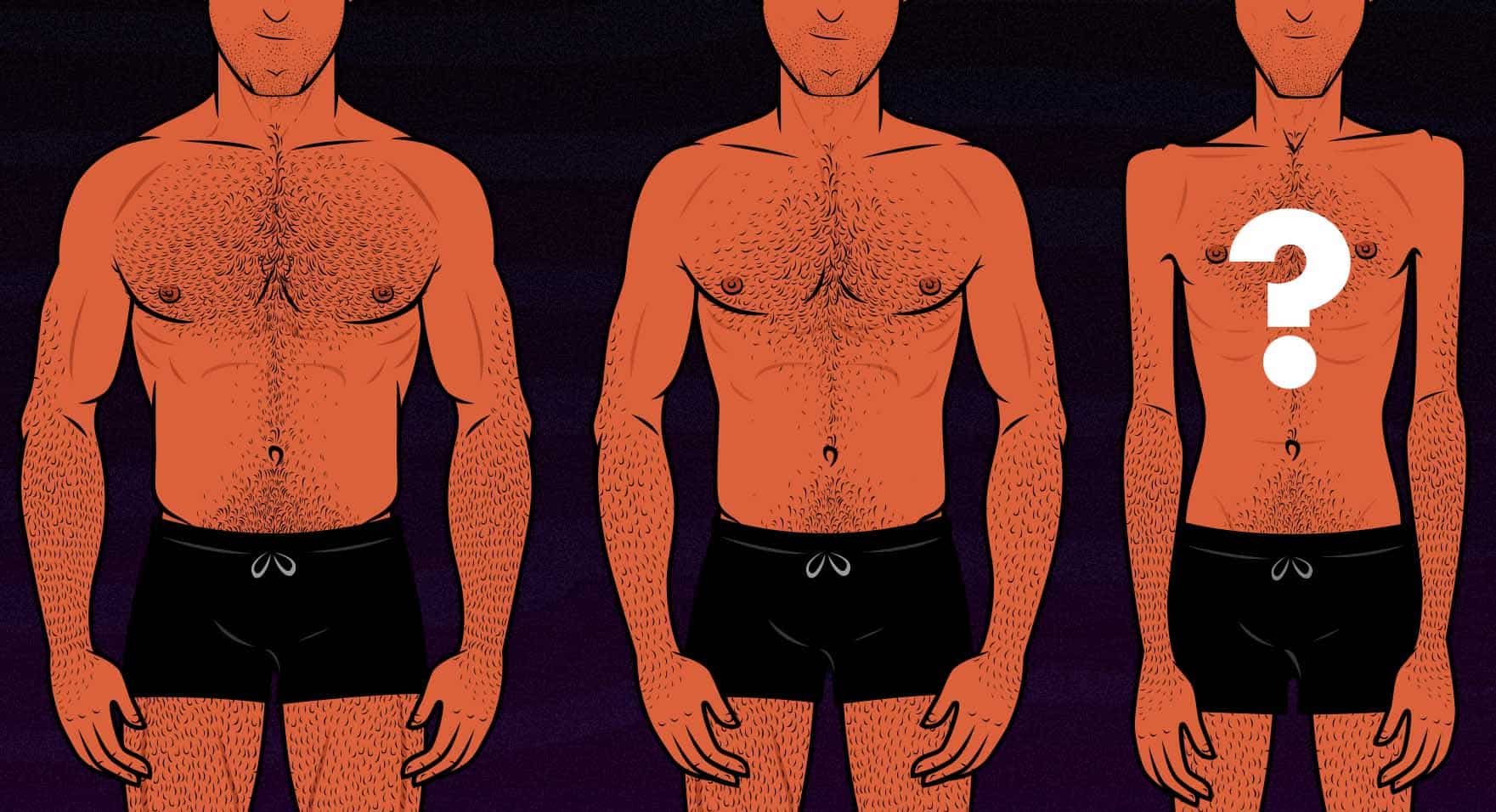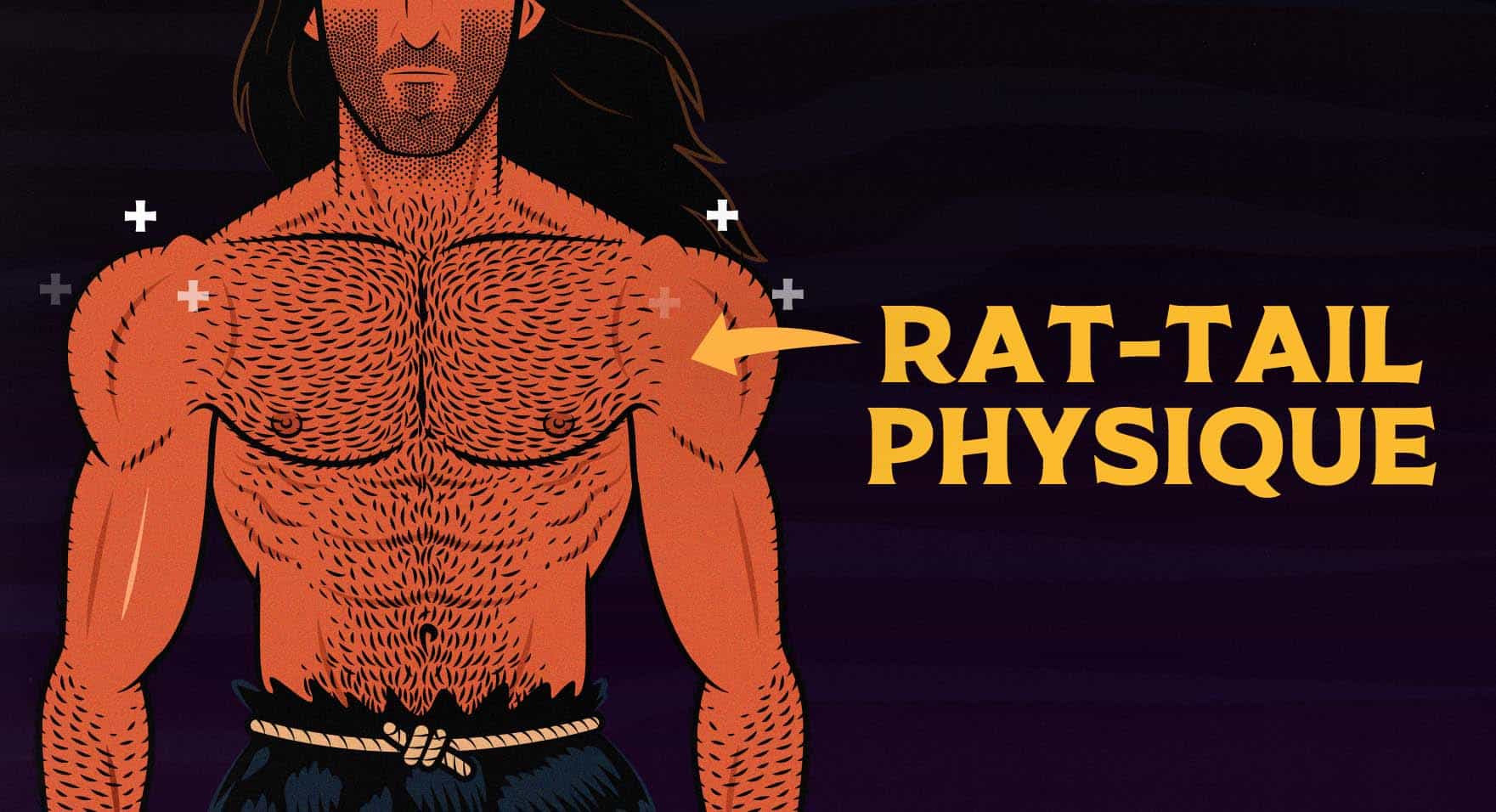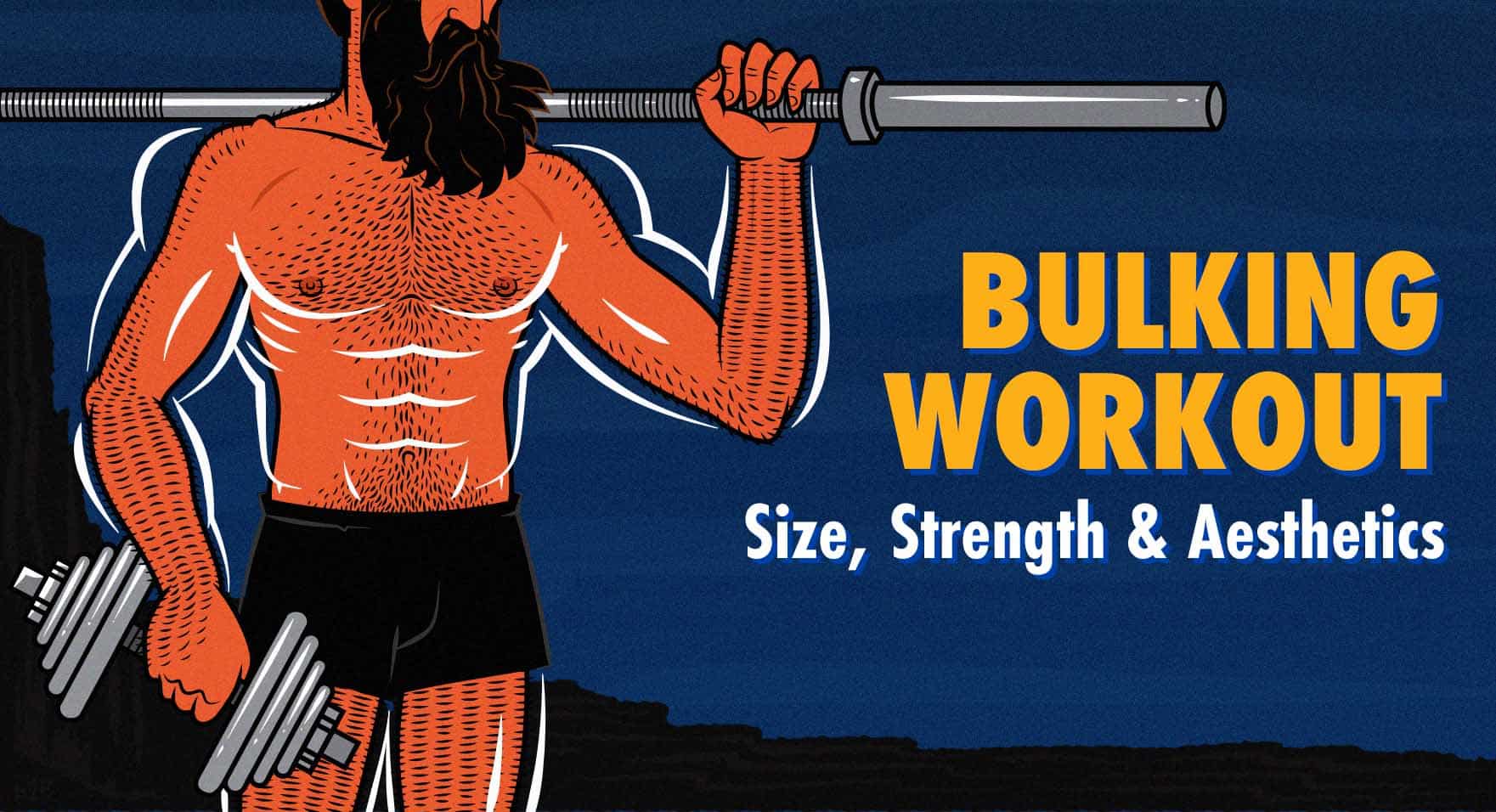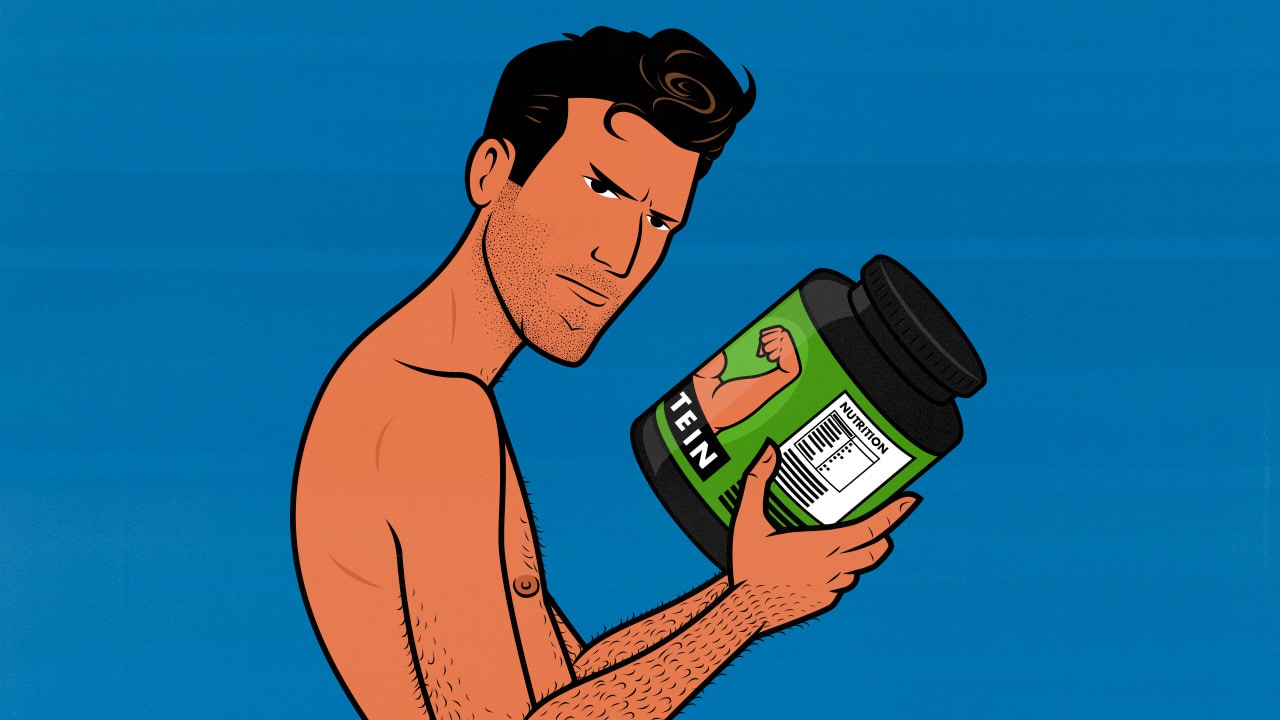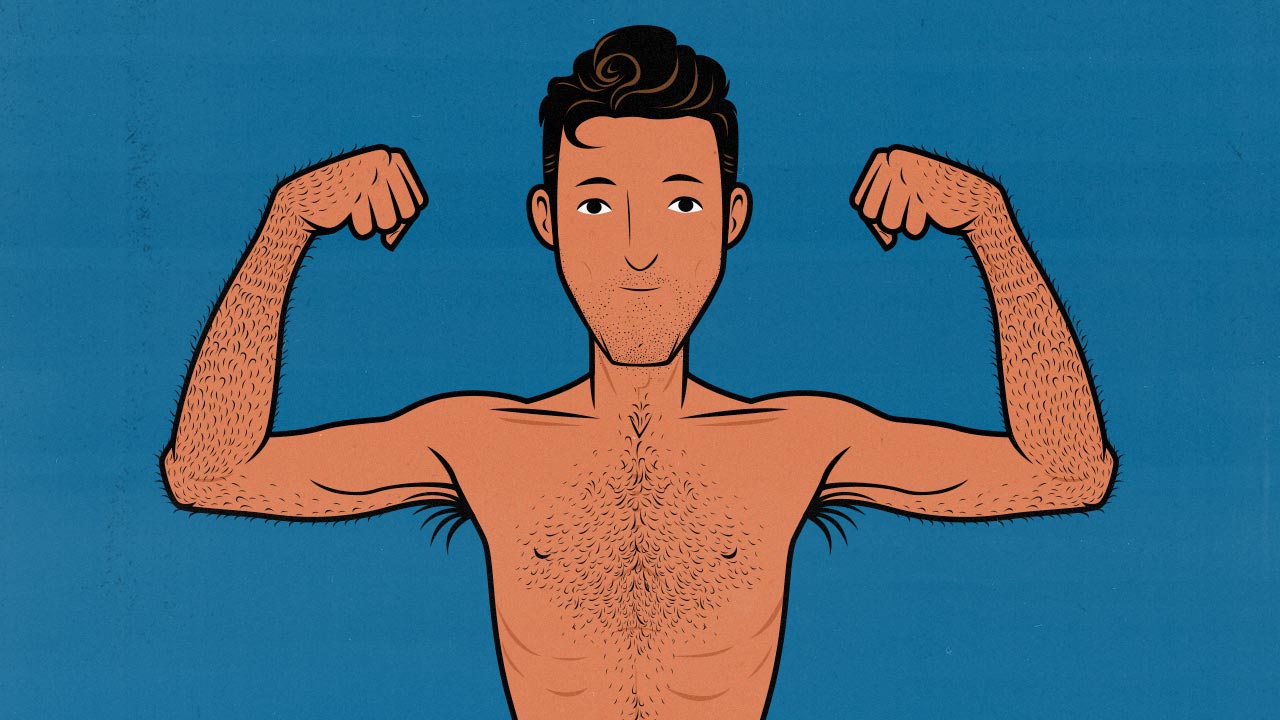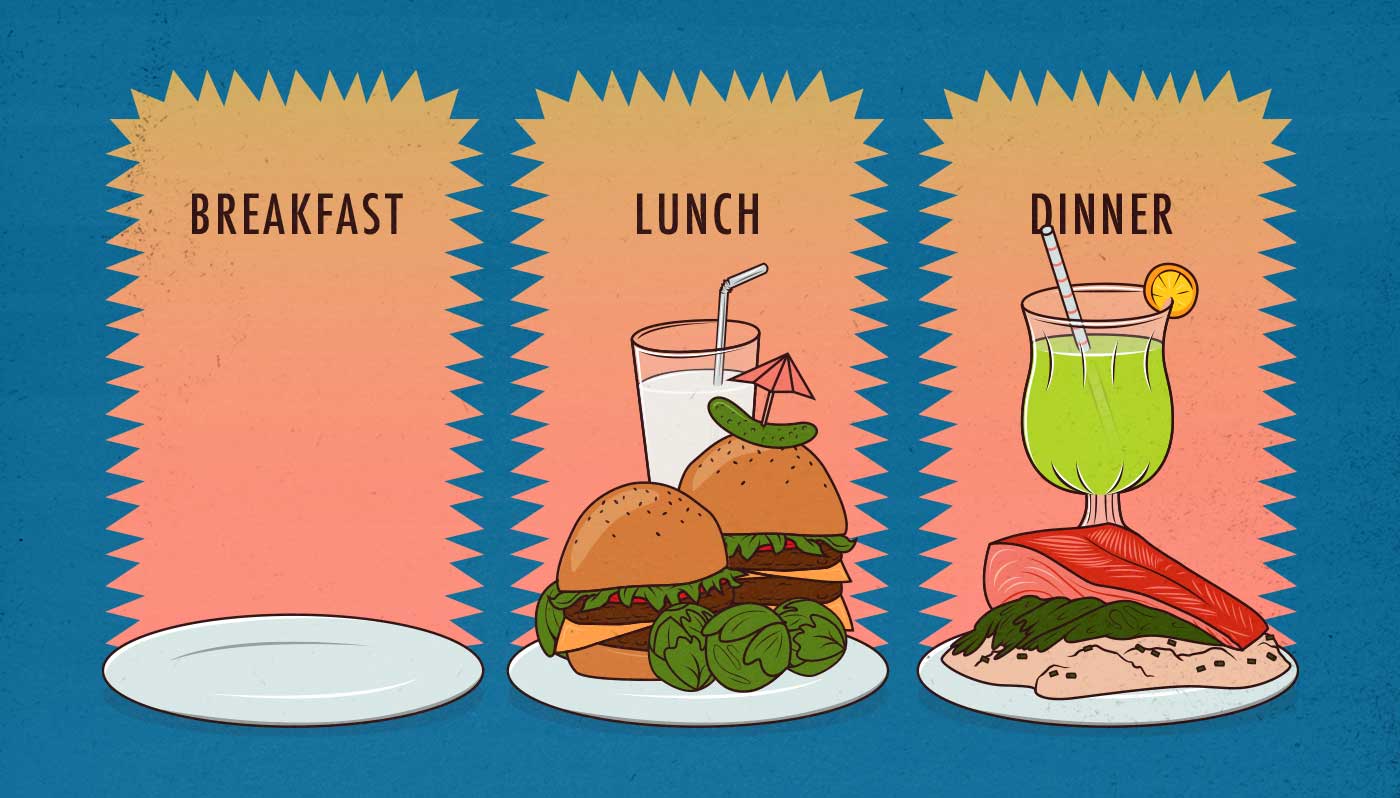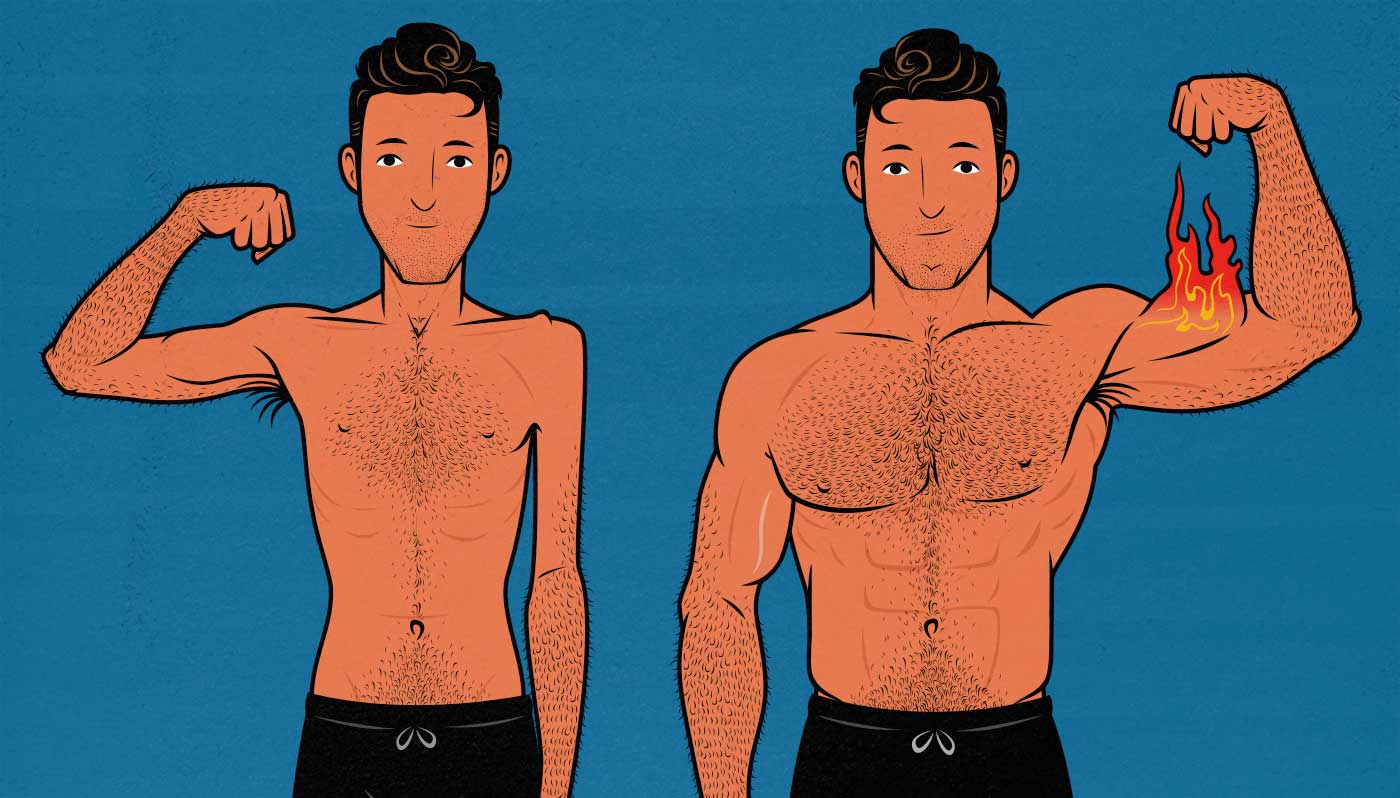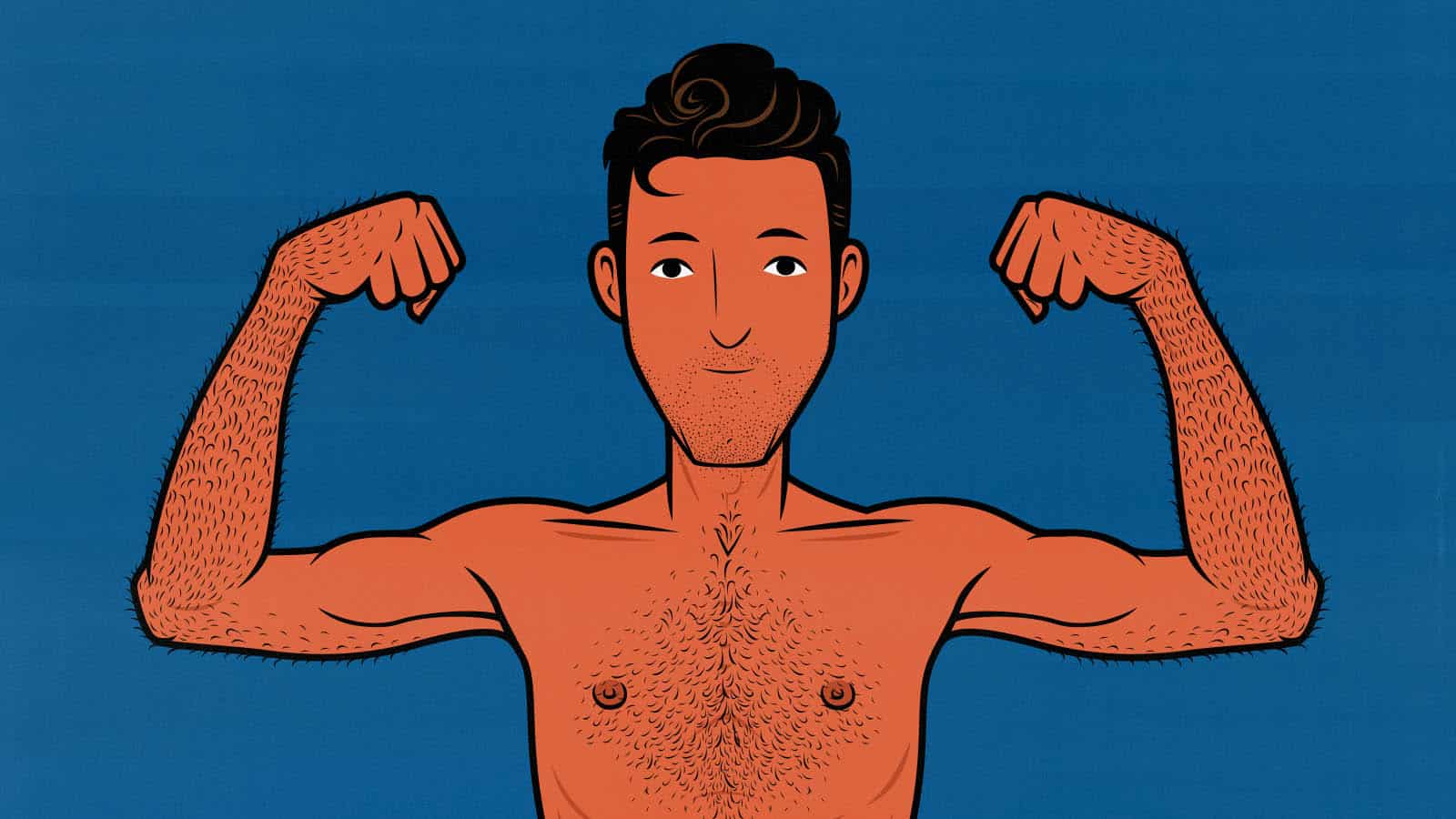Posts by Shane Duquette
Do Girls Like Skinny Guys? (Survey Results)
I surveyed a thousand women to see if they like skinny guys. In the first survey, I used photos. In the second, I used my own illustrations.
I’ve also been through all the research, including speaking with the lead researcher on the most influential paper that studied this.
And I’m a naturally skinny guy who’s bulking up. I have my own experience of dating (online and in person) while skinny and then while in great shape.
Let’s go through all of it.
Read MoreDo Women Prefer V-Taper Physiques with Bigger Side Delts?
When most guys think of the most attractive male physique, they think of a V-taper body shape with broad shoulders and a narrow waist. That isn’t wrong. There’s quite a bit of research showing that men with broader shoulders and narrower waists are more attractive.
The V-taper physique isn’t a myth. Rather, there are myths surrounding the V-taper physique. Those misunderstandings ruin what it symbolizes, destroying its aesthetic appeal.
The mistake is assuming you can improve your physique by emphasizing certain muscles, such as your side delts. This is the opinion held by quite a few experts and influencers, including Dr. Mike Israetel, Dr. Macken Murphy, TylerPath, WanHee, and many other influencers with many millions of followers (as shown in this video).
It’s true that building bigger side delts would give you broader shoulders, giving you a greater shoulder-to-waist ratio, and thus technically giving you a more pronounced V-taper, but I’m not sure that’s the best way to improve your appearance.
Let me go through the research, show you some interesting results from a survey I conducted, and explain the logic.
If you read the article and disagree with me, post a comment. I’ll answer it. I want to get this right.
Read MoreThe Best Bulking Programs for Skinny Beginners in 2025 (Reviewed)
To find the five best bulking programs for skinny beginners, we surveyed our 26,000 naturally thin newsletter subscribers. Most of them have tried several different bulking programs, some of which worked, and many of which didn’t.
We’ve also bulked up ourselves. Marco is naturally skinny, he has a degree in health sciences, he has over a decade of experience as a full-time strength coach, and he’s helped a wide variety of clients bulk up, ranging from everyday skinny guys all the way up to college, professional, and Olympic athletes.
I’m naturally skinny, too, with over 15 years of full-time experience helping over 15,000 skinny people bulk up. We live and breathe this niche. So, we’ll offer our own wisdom here, too, when we can.
Note: Our bulking program was rated the most highly, but that’s because we surveyed our own newsletter. We aren’t reviewing our program. We’re much too biased, obviously.
Note: There are no affiliate links.
Read MoreBulking Workout Routine: How to Maximize Muscle Growth
Whether you’re trying to build muscle, burn fat, or do both at the same time, you should be training for hypertrophy—for muscle growth. That’s why bulking, cutting, and body recomposition workouts are usually fairly similar.
Still, bulking workouts are special in three ways:
- More food means more energy and greater recovery. That means you can train harder and stimulate more muscle growth. You could train more often, do more exercises, do more sets, or push closer to failure.
- It might be worth doing more isolation exercises. Your arms and abs get plenty of stimulation from compound exercises, which is often enough to maintain their size and strength while cutting. That makes isolation exercises somewhat optional. But when you’re bulking, you have the opportunity to push it further, training them harder, bulking them up much faster.
- You can scale back cardio. It still helps to be active or do cardio, but you don’t need as much, especially if you’re pouring more energy into lifting weights or having trouble eating enough calories to gain weight.
Plus, it’s even more important to maximize muscle stimulation when you’re bulking. You’re eating enough calories to gain weight, and those extra calories can either be invested into muscle growth, stored as fat, or a mix of both. Thus, the more muscle growth you stimulate, the more of those extra calories will be invested into muscle, leaving fewer to be stored as fat.
Compare that to a cutting workout, where you have less energy, and all you need to do is maintain your muscle size. Maintaining muscle requires far less stimulation than gaining muscle, so cutting workouts can be shorter and easier.
Read MoreThe Best Protein Powder for Bulking (2025)
I’ll tell you the best protein powder for bulking, but you might be asking the wrong question. Protein is an important part of a balanced bulking diet, and protein powder is an easy way to get that protein, but you might be thinking of a weight gainer.
Weight gainers are high-calorie bulking supplements that contain both protein and carbs. You mix it into water just like protein powder, but you can get around 10x as many calories per serving. That can make it easier to gain weight. That might be what you’re thinking of. We’ll cover the best weight gainers, too.
Read MoreHow to Eat More Calories, Increase Your Appetite & Gain Weight
Most naturally thin people struggle to eat enough calories to gain weight. Usually, that’s a good thing. Our genetics help us avoid the obesity that plagues almost everyone else.
But if you’re skinny, underweight, or trying to bulk up, then the same genetic advantages that keep you healthfully lean can also make it extremely difficult to eat enough calories to build muscle.
Gaining weight is difficult, but it isn’t impossible, and we can make it much easier. I’ve gained 70 pounds and comfortably maintained it for over a decade. We’ve also helped over fifteen thousand other naturally skinny people bulk up, including professional and Olympic athletes. We’ve learned quite a lot while doing it.
I’ve got 17 tips that will make it much easier to gain weight.
Read MoreWhat’s an Ectomorph? Are Body Types Even Real?
An ectomorph is someone who is naturally slim. We tend to have thinner bone structures, fewer fat cells, and faster metabolisms. We’re often taller than average, with longer spines and limbs and proportionally smaller stomachs.
I’m an ectomorph. I’ve also spent the past fifteen years helping other ectomorphs gain weight, build muscle, and improve their health. It isn’t a body type. Some of our clients have included college, professional, and Olympic athletes. You can do great things with it.
Still, ectomorph is a controversial word. It was coined by the disgraced psychologist William Herbert Sheldon in the 1940s. He used it to describe the skinny body type and personality type, but he couldn’t prove a link between the two.
So, the word ectomorph isn’t scientific, but many of us still use it because it’s the simplest way to describe our thin builds.
Read MoreIs Intermittent Fasting Good for Building Muscle?
Intermittent fasting is popular for weight loss. But what if you’re a skinny guy trying to bulk up? Can you use intermittent fasting to build muscle faster or more leanly? After all, intermittent fasting raises growth hormone production, which purportedly helps with muscle growth; it increases insulin sensitivity, which could help make your muscle gains leaner; and research shows that intermittent fasting may help preserve muscle when losing weight.
On the other hand, bodybuilders are known for eating frequently—every few hours. They eat more often than the average person. Why is that? Could there be an advantage to eating more meals more often?
Finally, does intermittent fasting make it harder to eat enough calories to gain weight? Skinny guys are notorious for having smaller stomachs, faster metabolisms, and more meagre appetites, all of which can make it harder to eat enough calories to gain weight. Will intermittent fasting make that even harder?
Read MoreCan You Build Muscle On Keto? Most Research Says You Can’t
People have been using keto to lose weight for the past 200 years. For example, in the 1970s, it saw a surge in popularity because of the Atkins Diet, which started with a strict ketogenic phase.
During that same time period, bodybuilders have leaned towards higher-carb diets. Conventional bulking diets get most of their calories from carb-rich foods like rice, potatoes, sweet potatoes, oats, bananas, yogurt, beans, and lentils.
What happens if you try to use a ketogenic diet to build muscle? Will it hinder muscle growth? Can it yield leaner gains?
Dive inWhy Am I So Skinny? Skinny Genetics Explained
I’m naturally skinny. Both of my parents were, too. My dad was nicknamed “Mop” because of his shaggy hair and stick-thin body. My mum was nicknamed “Lampshade” because of her bob haircut and flat figure.
In my early twenties, I weighed 125 pounds at 6’2, with a BMI of 16. That’s clinically underweight, and my doctor never let me forget it. Nobody did. So, I dove deep down the rabbit hole of trying to figure out why I was so much skinnier than everyone else I knew.
There are a few genetic factors that make some people naturally skinny. We often have thinner bones, fewer fat cells, faster metabolisms, smaller stomachs, and a different hormonal response to food. Sometimes, our organs work a little harder than usual, burning extra calories. I’ll go into all of this in a second.
None of those genetic traits make it impossible to gain weight. There are several solutions for all of them. It’s just that while most people gain weight by accident, we need to do it on purpose. Having skinny genetics also comes with several huge advantages. I’ll cover those, too.
It took me a little over a year to bulk to a healthy body weight. I blogged about how I gained 70 pounds, teamed up with a renowned strength coach, and have spent the past 15 years helping other skinny people understand their genetics, build muscle, and improve their health.
Read More
